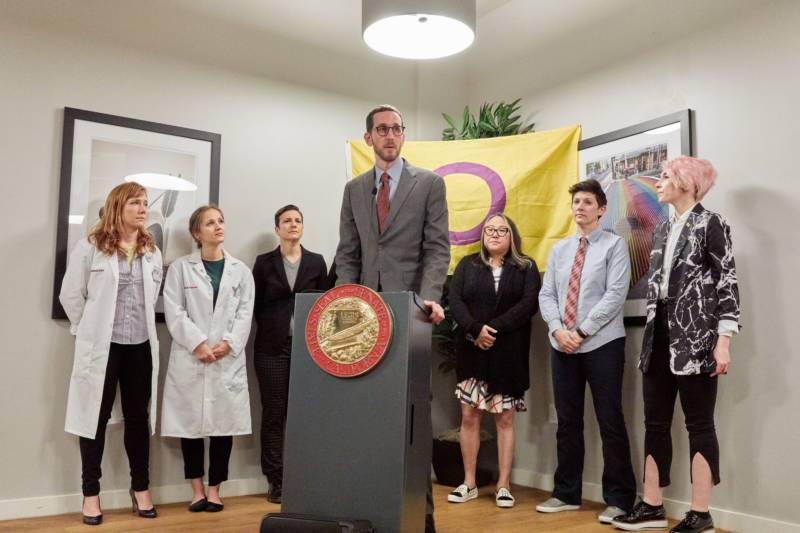State lawmakers have introduced legislation to ban unnecessary genital surgery for intersex babies that would be the first of its kind in the nation if it passes.
Senate Bill 201 would prohibit medical providers from performing cosmetic surgeries on intersex babies — individuals born with natural variations in sex characteristics or genitalia — until they can make their own decisions. Some of the surgeries that advocates say are medically unnecessary include reducing a clitoris, creating a vagina or removing healthy gonadal tissue.
“There are some procedures that violate our fundamental values as Californians,” state Sen. Scott Wiener, D-San Francisco, said Monday in introducing the legislation.
Advocates say these procedures are based on the desire to “normalize” genitalia but can have irreversible and harmful effects on puberty, fertility and gender expression.
If the bill passes, California would be the first state to prohibit non-consensual genital surgery for intersex infants.
“Instead of forcing conformity, we should celebrate our differences,” said Elizabeth Gill, an attorney with the ACLU of Northern California.
Wiener said non-consensual procedures on intersex infants is a human rights issue.

